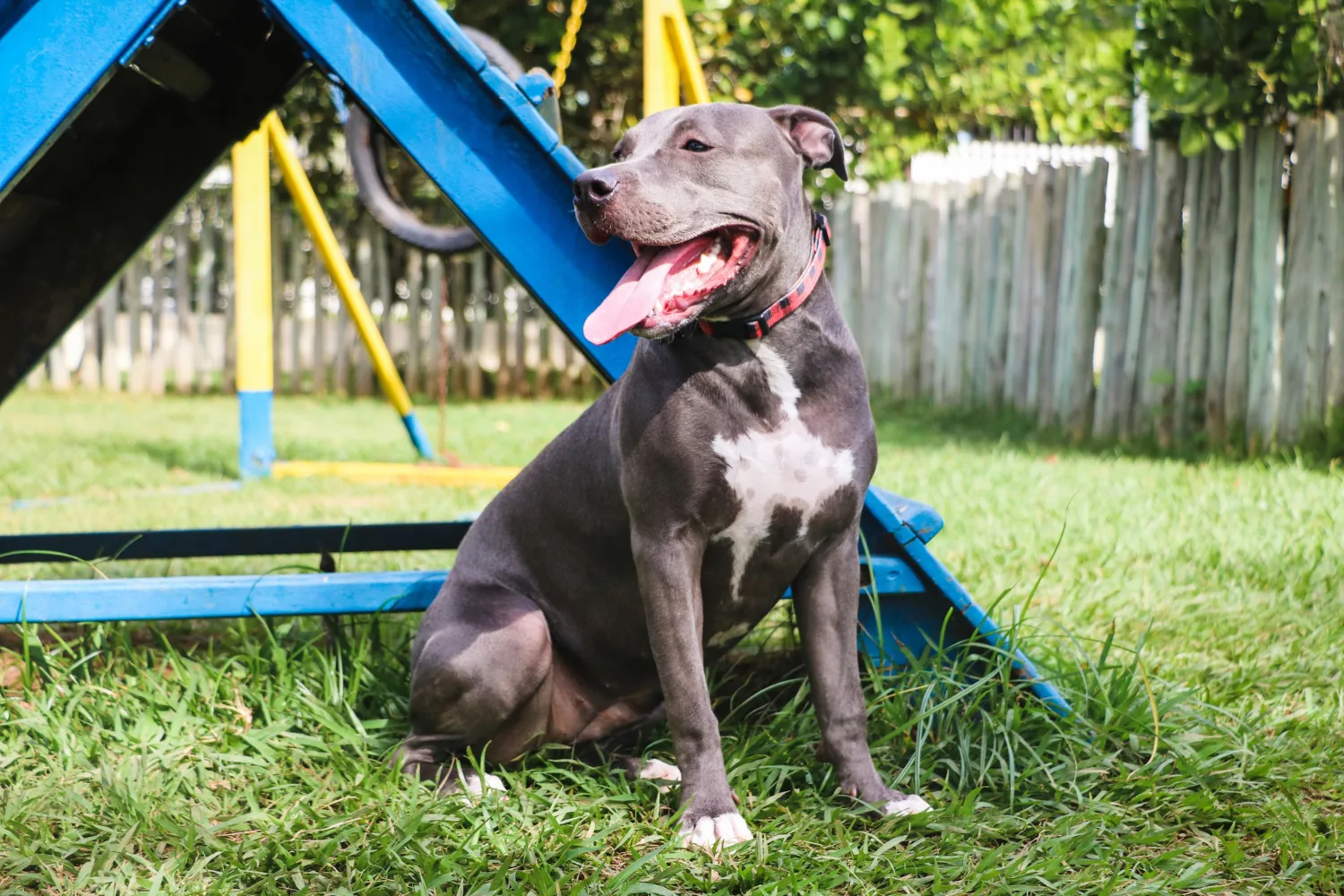
Why is my pitbull breathing so fast?
If you’re worried about your pet’s breathing, the first place to look is with your vet. Although rapid breathing during rest might not seem like a big deal, rapid breathing during wakefulness could indicate a deeper underlying problem. Other signs of respiratory problems include vomiting, diarrhea, lethargy, and coughing. Only your veterinarian can help you determine the root cause and determine the best treatment options. Hopefully, this information will be useful for you as you begin to notice signs of respiratory problems in your pet.
Arthritis
If your pitbull suddenly starts breathing very fast, the chances are that he has arthritis. Arthritis is a common problem among dogs, and the signs of arthritis in dogs are usually only evident when the pain becomes more acute. The dog might also show intermittent lameness or limping. In some cases, the dog may simply be uncomfortable or even limp, but a trip to the vet can help identify the underlying condition and prescribe treatment. Hydrotherapy, acupuncture, and massage therapy may help soothe the dog’s joints.
Another way to diagnose arthritis in a pitbull is to monitor the dog’s behavior. If your pitbull seems to avoid climbing stairs, this could be a sign of arthritic hips. While a dog’s behavior can’t be accurately determined by the cause of the problem, you can look for patterns in the way he behaves. If he refuses to go up the stairs, his behavior may indicate arthritis in his hips, as his weight change would place most of his weight on his hips. If he refuses to go up the stairs, however, his pain may be coming from his shoulders or elbows.
Eclampsia
There are many causes of fast breathing in a pitbull, but one of the most common is eclampsia, a condition that can happen to pregnant dogs. While this condition occurs in dogs of any breed, it is especially common in the first litter of puppies. It also can occur in dogs of any breed, including chihuahuas, miniature pinschers, shih-tzus, Mexican hairless dogs, and pomeranians.
Rapid breathing in a pitbull may indicate a number of medical conditions, such as asthma or kennel cough. It can also be indicative of a more serious problem, such as bleeding in the lungs or a heart condition. If it is the case, your pitbull should visit a veterinarian as soon as possible. If your pitbull is still growing, you should consider bringing him to the vet for a thorough checkup.
Arthritis in older dogs
If your dog is slow to get up or limps when walking, he may have arthritis. Arthritic dogs tend to hide pain, but they can communicate with you through body language. They may lick their joints or have a hard time climbing stairs. Your dog may also exhibit changes in sleeping habits or be irritable. Your veterinarian will recommend medication or hydrotherapy. You may also consider massage or acupuncture.
X-rays may reveal signs of joint problems. Arthritis pain relief is essential for dogs. It helps keep them active, which prevents the onset of arthritis. If your dog is not active or gets limited exercise, the pain caused by arthritis can exacerbate and make your dog feel even worse. Ibuprofen and acetaminophen can be dangerous for dogs, so consult your vet to determine which medications are safe for your pet.
Eclampsia in nursing mothers
If your pet is nursing, you may notice the first signs of eclampsia. She might appear restless and panting, and she may be unable to walk or talk. A weakened heartbeat may also signal cerebral edema. In some cases, your pet may not respond to treatment. Eclampsia in nursing mothers and pitbull breathing becomes a real medical emergency. If you notice any of these signs, consult your veterinarian.
The underlying cause of eclampsia in dogs is low calcium levels in the blood. The problem occurs because the dietary calcium supply is insufficient during pregnancy. The dog’s body cannot transfer calcium rapidly into milk. If calcium levels are too low, the condition can lead to eclampsia, which can be deadly. This is why veterinary care is necessary.
Eclampsia in older dogs
When you think of your dog, you likely picture a playful puppy or a feisty, energetic, or giddy puppy. While the onset of eclampsia in an older dog is not immediately apparent, veterinarians can help identify the symptoms of the condition. In general, treatment includes calcium supplementation and frequent monitoring of calcium levels. If eclampsia in older dogs is severe, your veterinarian may prescribe anti-seizure medication.
If you notice any of these signs in your dog, you should see a veterinarian as soon as possible. While the cause of eclampsia is not yet known, calcium levels are one way veterinarians can confirm the diagnosis. Your veterinarian can also perform a physical exam to make sure your pet is not sick and whether nursing is safe. Once you’ve determined that your dog’s symptoms are caused by eclampsia, the next step is to monitor your pet closely for signs of it.
Eclampsia in pregnant dogs
If you suspect that your dog is pregnant, you need to see a veterinarian right away. Early detection and treatment are important to prevent eclampsia from becoming a serious health problem. You can also give your dog a commercial milk replacer that works to replace the calcium lost during the pregnancy. Your vet can prescribe calcium supplements and other medications that can control the symptoms of eclampsia.
Clinical signs and biochemical tests are used to diagnose eclampsia. A biochemical profile shows that total serum calcium is less than seven milligrams/dL. A blood glucose level less than one gram/dL is a sign of hypocalcemia. If your pet’s calcium level is low, he may be having seizures. The baby should not nurse until the blood calcium level is raised, and you should keep him or her under regular supervision.
Also read:
- All about pitbull and irish water spaniel breed mix
- How many weeks is a pitbull pregnant?
- Mushrooms – Effects on Your Dog’s Health After Being Eaten
- What do pitbull skin tumors mean?
- How to running with a pitbull?
If you’re worried about your pet’s breathing, the first place to look is with your vet. Although rapid breathing during rest might not seem like a big deal, rapid breathing during wakefulness could indicate a deeper underlying problem. Other signs of respiratory problems include vomiting, diarrhea, lethargy, and coughing. Only your veterinarian can help you…
